INSIDE ISSUE 19.28 | July 10, 2020
 BIG STORY: Curbing virus is key to reopening schools, saving economy, experts say
BIG STORY: Curbing virus is key to reopening schools, saving economy, experts say
NEWS BRIEFS: Birth control access extended under Medicaid
COMMENTARY, Brack: Beware of a pandemic October surprise
SPOTLIGHT: ACLU of South Carolina
FEEDBACK: Keep telling it like it is, more
MYSTERY PHOTO: Old church
S.C. ENCYCLOPEDIA: Charles Townes
Curbing virus is key to reopening schools, saving economy
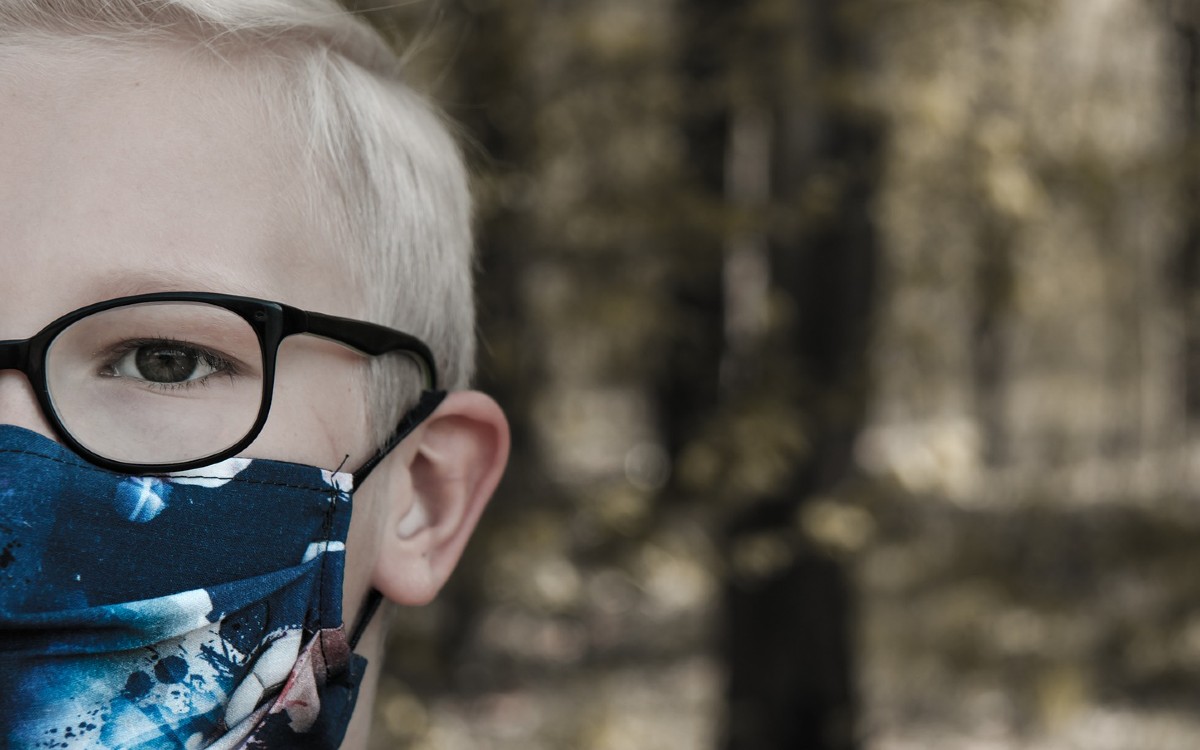
By Lindsay Street, Statehouse correspondent | Reopening school has become a central focus from the Statehouse to the White House this week as politicians seek to save a floundering economy.

“The thing we’re the most focused on is how do we get the economy moving as quickly as we can to increase jobs, increase people’s pay and get children back in school?” said state Rep. Kirkman Finlay, the Columbia Republican who chairs the House COVID-19 Employment, Workforce and Business Recovery Committee.
But coronavirus cases are still soaring in South Carolina, leading medical experts to caution that the state needs to reel in the virus before reopening schools.
Data showed this week that Arizona, Florida and South Carolina led the world in coronavirus cases per capita. As of Thursday, South Carolina had 50,548 confirmed cases with more than 20 percent of those tested being positive for the virus. There have been 898 confirmed deaths linked to the coronavirus. State health officials predict that the death toll will soar to nearly 3,000 by Oct. 1.
Federal aid to end soon
Unemployment related to the pandemic has crippled the state’s economy. Previous to the virus’ emergence in the state, the jobless rate was 2.5 percent — or 58,614 looking for work. In May, 12.5 percent, or 303,218, were reportedly without jobs.
Since mid-March, 651,750 people have received unemployment insurance benefits in the state, according to the S.C. Department of Employment and Workforce (DEW). Under a worst-case scenario, the agency has estimated its unemployment trust fund could go into debt by December.
The state’s average weekly benefit of $236 has been supplemented by $600 per week from the federal government. But the federal boost is scheduled to end July 25, DEW said. The federal program also paid 13 weeks beyond the state’s 20-week limit on unemployment.
 “We are now approaching a big financial shift nationwide as the Federal Pandemic Unemployment Compensation program is set to expire,” DEW Director Dan Ellzey said in a Thursday press release.
“We are now approaching a big financial shift nationwide as the Federal Pandemic Unemployment Compensation program is set to expire,” DEW Director Dan Ellzey said in a Thursday press release.
Congress is reviewing a third aid package that could include stimulus checks and another extension of unemployment benefits. On Thursday, 110 congressional members sent a letter to President Donald Trump seeking an extension of benefits. In South Carolina, low-income advocates are worried about what will happen when those benefits decrease. They predict a rise in evictions and hunger.
“It’s not going to be good,” S.C. Appleseed Legal Justice Center Director Sue Berkowitz said.
The economic linchpin
A recent national study found that with nearly one-third of the workforce with children at home, nearly 10 percent of economic activity is hampered while schools are closed. The Northeastern University research found parents were losing an average of eight hours of work per week with added child care duties.
“We can’t be doing work and child care at the same time; it just isn’t possible,” Women’s Rights and Empowerment Network CEO Ann Warner said.
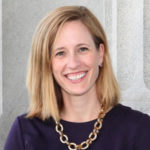
The current recession has hit women particularly hard, Warner added. Women are often in face-to-face businesses, such as retail or food service, which were impacted by the work-or-home order. They also bear the brunt of child care, Warner said.
Finlay said continued school closures will be “a monster problem for parents.”
“How do you deal with having a day job at the same time as having your children at home?” he said. He added that in his work with homeless families, often the biggest help in getting parents back to work is getting the child enrolled in school.
Trump vowed this week to pressure states to reopen schools to in-person instruction. The S.C. Department of Education appears to be allowing districts to formulate their own plans.
Pediatricians want school to start back up, too
Pediatricians agree school needs to be restarted.
The Association of American Pediatrics released a statement June 26 encouraging schools to reopen since they provide “academic instruction, social and emotional skills, safety, nutrition, physical activity, and mental health therapy.”
And children can be safer, too, since educators can help catch abuse or neglect. South Carolina’s reports of child abuse or neglect have decreased since schools shuttered, and as of last week, schools have failed to contact 16,085 students statewide since in-person classes closed March 15.
S.C. pediatrician Deborah Greenhouse testified to the Senate select committee this week to support schools’ reopening. She said there is evidence suggesting that not only are children less likely to contract COVID-19, but they are also less likely to carry and pass on the virus to others. Still, she said, social distancing and masks at school will be needed.
But it isn’t as easy as setting a start date in August, other medical experts warn.
“That risks not only infecting the children but the parents as well, which will ultimately harm the economy and overflow the hospital system,” Clemson Public Health Sciences professor Lior Rennert said.
Masks offer a solution, some say
The conclusion of many in Columbia is that for the economy to get healthy, people need to get back to work. For people to get back to work, children must return to school. And for children to return to school safely in a pandemic, South Carolina has to get control of the coronavirus.

“We’re not going to get back to work as a state until our kids get back to school and we’re not going to get our kids back to school until it’s relatively safe” said Columbia Democratic Sen. Dick Hartpootlian, who serves on the Senate Re-Open South Carolina Select Committee.
Medical experts say beating the pandemic starts with masks and the potential for shuttering bars and ending indoor dining service. For several weeks now, local governments have enacted their own mask requirements and encouragements. But medical experts say a statewide mask order is needed — something Gov. Henry McMaster has repeatedly said he will not do because of enforcement issues.
“South Carolina needs school in the fall. How do we get there? A statewide #maskmandate. Closing bars and indoor dining. Occupancy limits. Please make it happen, Governor,” Greenhouse tweeted July 2. She reiterated that message July 8 before the Senate select committee.
Clemson’s Rennert said without masks and enforcement, the virus will continue to spread.
“The first thing that the citizens of South Carolina should start doing is wearing masks when they are out in public, because it’s not about the individual preventing the disease, more importantly it is about preventing the spread of the disease,” he said.
WREN’s Warner said South Carolina needs “to get the virus under control” first.
“Until we can do that, it’s just unrealistic and it’s dangerous to put kids back in school,” she said.
Hartpootlian said mask-wearing is a budget-friendly way to get the economy back on track.
“There is no constitutional right to infect somebody,” he said. “The governor, first of all, should issue the kinds of orders that are being issued in Florida and Texas and Ohio: Everybody should wear masks.”
- Have a comment? Send to: feedback@statehousereport.com
Birth control access extended under Medicaid

By Lindsay Street, Statehouse correspondent | South Carolina’s Medicaid agency has altered its policy to allow beneficiaries to receive a 12-month supply of birth control, instead of the previous 30-day supply limit, effective July 1.
The S.C. Department of Health and Human Services does not expect a budgetary impact from the move, the notice said.
“That’s a nice, really good victory that went under the radar,” Columbia Democratic Rep. Beth Bernstein said this week.
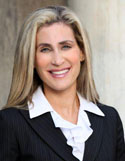
Bernstein worked with fellow lawmakers for several legislative sessions on a bipartisan plan to mandate Medicaid and private insurance plans to cover one year’s supply of self-administered contraceptives. But little movement was made, she said.
For many women, particularly those in rural areas, getting a prescription filled monthly was burdensome, Bernstein said.
“The opportunity to miss that pill was much greater and I think the state sees it as the cost of an unintended pregnancy is much more on the state than the cost of a 12-month supply of birth control,” Bernstein said.
DHHS did not respond to a request seeking comment on this story.
In other news:
![]() Flag rally to be held Saturday. Today is the five-year anniversary of the Confederate battle flag’s removal from the Statehouse grounds. Tomorrow, the South Carolina Memorial Honour Guard, reenacting a Confederate-era honor guard, and Flags Across the South have plans to showcase the Confederate battle flag on Statehouse grounds. Showing Up for Racial Justice will rally tomorrow at the Statehouse in favor of the flag’s removal. Read more.
Flag rally to be held Saturday. Today is the five-year anniversary of the Confederate battle flag’s removal from the Statehouse grounds. Tomorrow, the South Carolina Memorial Honour Guard, reenacting a Confederate-era honor guard, and Flags Across the South have plans to showcase the Confederate battle flag on Statehouse grounds. Showing Up for Racial Justice will rally tomorrow at the Statehouse in favor of the flag’s removal. Read more.
DHHS study to be discussed. The Legislative Oversight Healthcare and Regulatory subcommittee will meet virtually at 10 a.m. July 28 to discuss the study of the S.C. Department of Health and Human Services. The meeting will be livestreamed on SCETV, according to the agenda. A Legislative Oversight survey of the agency showed that more than half of respondents have a positive view of the agency.
A growing homeless population could be even more vulnerable. The state could see an increase in its homeless population amid the economic crisis surrounding the pandemic, and experts are warning heat-related deaths could increase as homeless people are unable to access air-conditioned public buildings, shuttered in the pandemic. Read more here.
Time to pay taxes. The S.C. Department of Revenue matched the IRS in extending the deadline for 2019 tax returns to July 15. Both will be due next week. Read more. According to S.C. Revenue and Fiscal Affairs Director Frank Rainwater, tax payments will help the state get a clearer picture of revenue impacts for the 2020-2021 budget that lawmakers plan to draft in September.
Federal judge awards $192.5M settlement in nuclear case. Former shareholders of SCANA Corp. have earned a $192.5 million legal settlement after a federal judge’s approval Thursday over the failed V.C. Summer nuclear expansion project that sank $9 billion and led to SCANA’s sale to Dominion Energy. The deal is being hailed as the largest investor-related settlement in South Carolina history. Read more.
- Have a comment? Send to: feedback@statehousereport.com
BRACK: Beware of a pandemic October surprise

By Andy Brack, editor and publisher | British thinker and science writer Matt Ridley has a reminder for anyone looking for a quick fix for coronavirus: Innovation takes time.
 In what may be the most impactful and important non-fiction book of the year, Ridley’s “How Innovation Works” says we’ll eventually figure out how to deal with the deadly virus, but it won’t happen overnight.
In what may be the most impactful and important non-fiction book of the year, Ridley’s “How Innovation Works” says we’ll eventually figure out how to deal with the deadly virus, but it won’t happen overnight.
“As always with innovation, trial and error will decide, but the chances that none of them [potential cures] can cure or ameliorate this disease are small,” writes Ridley in a new afterword of the book, first published in May. “One way or another we will eventually escape from this nightmare and resume economic activity.”
Ridley is an award-winning writer who also happens to be a libertarian and member of Britain’s House of Lords. A columnist for The Times of London and The Wall Street Journal, he collects and interprets research on science, economics and prosperity to explain complicated stuff, such as how ideas and innovation power our society.

What’s most compelling about his new book is it has a pretty clear lesson for anybody who suggests a COVID-19 cure is just around the corner. It may be, he says. But again, it also may not be — because innovation works on its own schedule.
For us, the book teaches any politician or pundit who promises an antiviral therapy, vaccine or miracle cure by the end of the year is either filled with malarkey or spinning political hocus-pocus in what is, remember, an election year. Don’t be shocked if there’s some kind of pandering political surprise in October.
Right now, what’s most worrisome, Ridley warns, is that our current way of developing something like a vaccine is too cumbersome and expensive, often punctuated with bureaucratic hurdles and medical landmines. Governments tend, he says, to get in the way of private companies that can innovate. But in an unfortunate twist, those very same companies generally don’t spend enough time developing vaccines because it’s expensive and not profitable in the short term.
“By far the biggest failure of the 2020 pandemic is the failure to have done enough innovation in the field of vaccines,” Ridley wrote.
He explains the difference between innovation and invention by using a quote from Charles Townes (1915-2015), a Nobel Prize-winning physicist born in Greenville who was critical in the development of the laster.
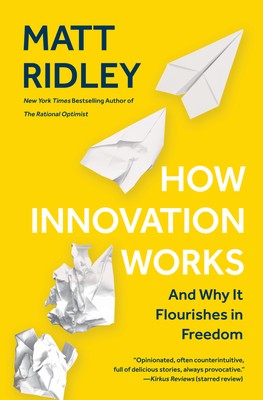 Townes often pointed to an old cartoon of a beaver and a rabbit looking at the Hoover Dam, Ridley wrote. “‘No, I didn’t build it myself,’ says the beaver. ‘But it’s based on an idea of mine.’” An inventor, Ridley explains, may come up with a really good idea that solves a huge problem, such as how to use steam to power an engine or how to use electricity to produce light. But an innovator, through hard work, perspiration, determination and sheer force of will, ferrets out how to make it work in an affordable, easy-to-use manner. For example, several inventors figured out how to make a light bulb, but it took innovator Thomas Edison and his team of scientists to test more than 6,000 plant materials to find the ideal carbon filament to make a bulb really work.
Townes often pointed to an old cartoon of a beaver and a rabbit looking at the Hoover Dam, Ridley wrote. “‘No, I didn’t build it myself,’ says the beaver. ‘But it’s based on an idea of mine.’” An inventor, Ridley explains, may come up with a really good idea that solves a huge problem, such as how to use steam to power an engine or how to use electricity to produce light. But an innovator, through hard work, perspiration, determination and sheer force of will, ferrets out how to make it work in an affordable, easy-to-use manner. For example, several inventors figured out how to make a light bulb, but it took innovator Thomas Edison and his team of scientists to test more than 6,000 plant materials to find the ideal carbon filament to make a bulb really work.
“Edison understood better than anybody before, and many since, that innovation is itself a product, the manufacturing of which is a team effort requiring trial and error,” Ridley wrote.
While the applied sciences of innovation eventually will rout the virus, Ridley says something else has happened as people socially distance and have started to wear masks to protect themselves and others: Other kinds of innovation are occurring.
Before the pandemic, online meetings were possible, but not ubiquitous. But now, Zoom meetings are routine because they’re easy. Twenty years ago, online shopping was terrible; broadband didn’t exist. But as people hunker down in homes,, they can avoid a lot of out-of-house activity by ordering in directly.
In the days ahead, productivity likely will accelerate thanks to innovations, Ridley says. More data will be shared. Cash will become less important. Technology will improve delivery of health care.
And a coronavirus cure of some sort is on the way. But it may not be in time for an election. So watch out for an October surprise.
- Andy Brack is editor and publisher of Statehouse Report. His weekly column also appears in the Charleston City Paper, Florence Morning News, Greenwood Index-Journal, Hartsville Messenger, Seneca Daily Journal and Camden Chronicle-Independent. Have a comment? Send to: feedback@statehousereport.com.
ACLU of South Carolina
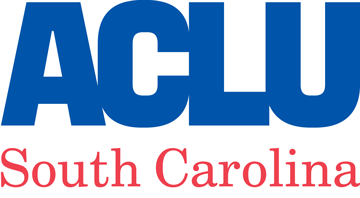 The public spiritedness of our underwriters allows us to bring Statehouse Report to you at no cost. This week’s spotlighted underwriter is the American Civil Liberties Union. The ACLU of South Carolina is dedicated to preserving the civil liberties enshrined in the U.S. Constitution and Bill of Rights. Through communications, lobbying and litigation, the ACLU of South Carolina works to preserve and enhance the rights of all citizens of South Carolina. Foremost among these rights are freedom of speech and religion, the right to equal treatment under law, and the right to privacy.
The public spiritedness of our underwriters allows us to bring Statehouse Report to you at no cost. This week’s spotlighted underwriter is the American Civil Liberties Union. The ACLU of South Carolina is dedicated to preserving the civil liberties enshrined in the U.S. Constitution and Bill of Rights. Through communications, lobbying and litigation, the ACLU of South Carolina works to preserve and enhance the rights of all citizens of South Carolina. Foremost among these rights are freedom of speech and religion, the right to equal treatment under law, and the right to privacy.
Keep telling it like it is
To the editor:
![]() Thank you, Andy, for telling it like it is. Just as President Donald Trump has been derelict in his duty to keep us safe from the virus at the national level, Gov. Henry McMaster has been equally incompetent here in South Carolina. He has been dead wrong in stubbornly refusing to require face masks statewide and the height of his incompetence was reached when he reopened the bowling alleys and designated Myrtle Beach’s (in)famous Thee Doll House as an “essential business.” Really, Henry? A strip joint essential?
Thank you, Andy, for telling it like it is. Just as President Donald Trump has been derelict in his duty to keep us safe from the virus at the national level, Gov. Henry McMaster has been equally incompetent here in South Carolina. He has been dead wrong in stubbornly refusing to require face masks statewide and the height of his incompetence was reached when he reopened the bowling alleys and designated Myrtle Beach’s (in)famous Thee Doll House as an “essential business.” Really, Henry? A strip joint essential?
Now even other Trumpublican governors are realizing their mistakes and requiring masks. Greg Abbott, the governor of Texas (no less) risked a “mean tweet” from the Tweeter-in-Chief and the wrath of his even more radical lieutenant governor, Dan Patrick. We, here in Columbia, can be grateful for the leadership of a Democratic mayor, Steve Benjamin.
Henry has put the health and lives of all of us at risk by his exaltation of politics over public health. I hope that voters will remember his fecklessness when he seeks re-election.
— Gere B. Fulton, Columbia, S.C.
Governor followed Trump’s sad example
To the editor:
I just found a few minutes to read Sunday’s paper and appreciated your column on policy failure across the state in dealing with COVID-19. There can certainly be a case made that the failure was not in policy because I do not even consider what Henry McMaster did as policy. The governor and other state leaders followed the sad and pathetic example of our president and put politics and money ahead of common sense.
After I read the article last night that said that our state was number three on the list of states for the highest risk in virus infection, I texted my friends Sen. Mike Gambrell and Rep. Jay West. If the governor’s goal is never really shutting down the state then wishing to see the state’s name in lights in the Trump blitz to recovery, he was certainly smiling last night. Yeah, we are number three. What a sad accomplishment.
— Andy Sullivan, Honea Path, S.C.
What do you think?
We love hearing from our readers and encourage you to share your opinions. But you’ve got to provide us with contact information so we can verify your letters. Letters to the editor are published weekly. We reserve the right to edit for length and clarity. Comments are limited to 250 words or less. Please include your name and contact information.
- Send your letters or comments to: feedback@statehousereport.com
Old church
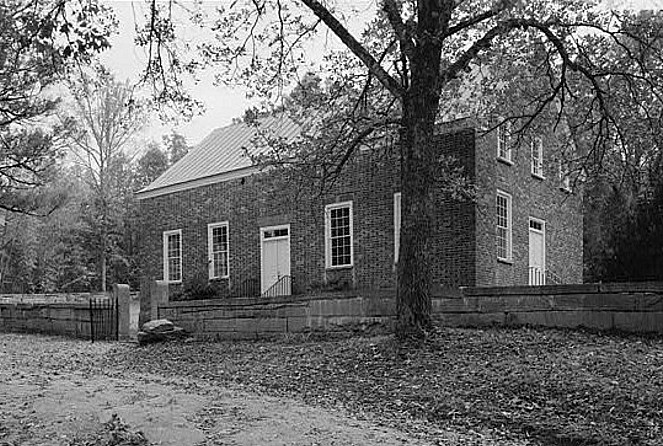
Here’s an old South Carolina church, but where is it? Identify and tell us something about any facet of the photo. Send your best guess of what it is to feedback@statehousereport.com. And don’t forget to include your name and the town in which you live.
Our previous Mystery Photo
 Our July 3, “Easy marine scene,” turned out to be a little more difficult than first thought. Several people pegged it as a boardwalk in Georgetown when the scene actually shows Shem Creek in Mount Pleasant. Three readers identified the photo correctly: George Graf of Palmyra, Va.; Jacie Godfrey of Florence; and Joe Mendelsohn of Charleston. Congrats!
Our July 3, “Easy marine scene,” turned out to be a little more difficult than first thought. Several people pegged it as a boardwalk in Georgetown when the scene actually shows Shem Creek in Mount Pleasant. Three readers identified the photo correctly: George Graf of Palmyra, Va.; Jacie Godfrey of Florence; and Joe Mendelsohn of Charleston. Congrats!
Graf told us that Shem Creek was known as Distillery Creek in the early 1800s when “a short-lived distillery built along the creek’s shoreline. Between ownerships, it was always referred to as Shem Creek and the name remains today. Shem Creek flows through the heart of Mount Pleasant and is known for its many waterfront bars and restaurants. It also offers a variety of leisure activities including fishing, boating, kayaking, and paddleboarding. The banks of Shem Creek were originally inhabited by Sewee Indians. Its name is thought to derive from the Native American word Shemee.”
Send us a mystery: If you have a photo that you believe will stump readers, send it along (but make sure to tell us what it is because it may stump us too!) Send to: feedback@statehousereport.com and mark it as a photo submission. Thanks.
Nobel laureate Charles Townes
Charles Townes was born in Greenville on July 28, 1915, the second of six children born to Henry Keith Townes, an attorney, and Ellen Hard. He grew up on a farm and was interested in natural history from an early age. Townes visited the collections of the Charleston Museum and was fascinated by the differences in plants and animals he saw on the shore and in tidal inlets and those of his own Piedmont region. He attended Greenville public schools and Furman University, where he received a bachelor of science in physics and a bachelor of arts in modern languages, graduating summa cum laude in 1935. Townes completed work for a master of arts in physics at Duke University in 1936 and entered graduate school at the California Institute of Technology, where he received his doctorate in 1939. He married Frances H. Brown of New Hampshire on May 4, 1941. The couple has four daughters.
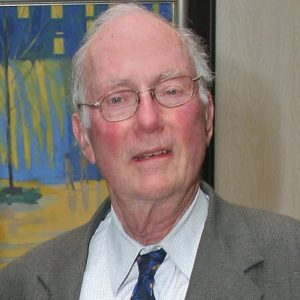
As a member of the technical staff of Bell Telephone Laboratories from 1939 to 1947, Townes designed radar bombing systems during World War II. He subsequently joined the faculty of Columbia University, where he served successively as associate professor, professor, and chairman of the physics department from 1948 to 1961. From 1959 to 1961 Townes was vice president and director of research of the Institute for Defense Analysis in Washington, D.C., and then served as provost and institute professor at the Massachusetts Institute of Technology from 1961 to 1966. Since 1967 Townes has been a professor at the University of California, Berkeley. He became university professor emeritus in 1986 and professor in the Graduate School in 1994.
Townes’s principal scientific work has been in microwave spectroscopy, nuclear and molecular structure, quantum electronics, radio astronomy, and infrared astronomy. He holds the original patents for the maser and the laser, the latter of which he shares with his brother-in-law, Arthur L. Schawlow. Townes conceived the idea of the “maser” (an acronym for “microwave amplification by stimulated emission of radiation”) in 1951 and achieved the first amplification and generation of electromagnetic waves by stimulated emission in 1954. Four years later Townes and Schawlow suggested that masers could be made to function in the optical and infrared region. They dubbed these optical and infrared masers “lasers” (“light amplification by stimulated emission of radiation”). His pioneering work with masers and lasers earned Townes the Nobel Prize in physics in 1964.
During much of his career Townes has been a government adviser. In 1960 he was a founding member of the Jasons, a group of scientists who provide advice to the government regarding national issues that involve science and technology. Townes served on the President’s Science Advisory Committee from 1966 to 1970 and was chairman of the technical advisory committee for the Apollo Program until shortly after the lunar landing. He chaired committees on strategic weapons and the MX missile and has been an active member in the National Academy of Science. Additionally, he has been active in helping to formulate advice given by the Papal Academy to the pope on issues of peace and the control of nuclear weapons.
Townes is the author of three books: Microwave Spectroscopy (with Arthur Schawlow, 1955), Making Waves (1995), and How the Laser Happened: Adventures of a Scientist (1999), as well as numerous articles. His achievements have been recognized with numerous awards and honors, including the National Medal of Science (1982) and no fewer than twenty-seven honorary degrees. Townes died in 2015.
— From an entry by Mary S. Miller. This entry may not have been updated since 2016. To read more about this or 2,000 other entries about South Carolina, check out The South Carolina Encyclopedia, published in 2006 by USC Press. (Information used by permission.)
ABOUT STATEHOUSE REPORT
Statehouse Report, founded in 2001 as a weekly legislative forecast that informs readers about what is going to happen in South Carolina politics and policy, is provided to you at no charge every Friday.
Meet our team
- Editor and publisher: Andy Brack, 843.670.3996
- Statehouse correspondent: Lindsay Street
We’re proud to offer Statehouse Report for free. For more than a dozen years, we’ve been the go-to place for insightful independent policy and political news and views in the Palmetto State. And we love it as much as you do.
But now, we can use your help. If you’ve been thinking of contributing to Statehouse Report over the years, now would be a great time to contribute as we deal with the crisis. In advance, thank you.
Buy the book
Now you can get a copy of editor and publisher Andy Brack’s We Can Do Better, South Carolina! ($14.99) as a paperback or as a Kindle book ($7.99). . The book of essays offers incisive commentaries by editor and publisher Andy Brack on the American South, the common good, vexing problems for the Palmetto State and interesting South Carolina leaders.
More
- Mailing address: Send inquiries by mail to: 1316 Rutledge Ave., Charleston, SC 29403
- Subscriptions are free: Click to subscribe.
- We hope you’ll keep receiving the great news and information from Statehouse Report, but if you need to unsubscribe, go to the bottom of the weekly email issue and follow the instructions.
- Read our sister publications: Charleston City Paper (every Wednesday) | Charleston Currents (every Monday).
- © 2020, Statehouse Report, a publication of City Paper Publishing, LLC. All rights reserved.



Pingback: NEW for 7/10: Controlling virus is key; Innovation and an October surprise – Statehouse Report